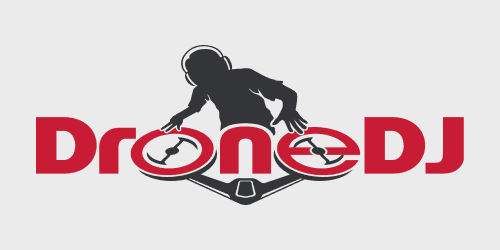
Given the recurring and emotionally charged accusations of video-packing drones violating personal privacy – both perceived and actual – does the seriously upgraded zoom capabilities of DJI’s Mavic 3 risk elevating the ongoing Peeping Tom debates to even higher levels?
Since the Mavic 3 won’t even be unveiled until November 5, any speculation about what responses the considerably muscled-up tech on the craft will generate – apart from the enthusiasm voiced by droning fans following product leaks – remains the stuff of fortune tellers. Still, with reported specs of the craft describing 28x hybrid zoom capacities (4x digital, times 7x optical), that ability to get even more up close and personal with people on the ground may well raise concerns among the more militant UAV Greta Garbos of the world.
Consider developments going into the Mavic 3 from their perspective. Until now, consumer drones and even enterprise UAV have had limited digital zoom capabilities, or low-level 2x or 3x optical capacities that turn grainy fairly fast. To get anywhere near top-level 30x views, operators needed to put digital single-lens reflex cameras on very expensive professional or heavy-lift UAVs.
All of a sudden, as of this week, average users will have access to 28x eyes in the sky – so long as they have the average income allowing for an average investment of $2,300 to $5,200 that a decidedly less than average DJI Mavic 3 will reportedly cost.
That kind of potential peeping power considerably weakens previous manufacturer retorts to complaints about potential privacy violations, which argued limited zoom capacities require drones to fly in fairly close (and with easily detectable noise) to pick up anything worth hiding. Meanwhile, (the reply went), it’s unwise to blame – much less seek to slow – generally productive tech development out of fear of how a tiny minority of morons may decide to abuse it.
So with the zooming chops of the Mavic 3 capable of making stupid things that idiots may do even more invasive, perhaps it’s better to turn attention to something both sides in the debate may agree on: It’s time for authorities to create clear and coherent laws protecting privacy rights, as well of those who operate camera-equipped drones.
For now, that broad and reasonable framework doesn’t exist.
Drone pilot common sense, rather than privacy laws, will dictate use of DJI Mavic 3’s super-zoom capacities – for now
Though the Federal Aviation Administration (FAA) effectively controls all airspace over private property, it largely limits its position on privacy to urging pilots to seek overflight and/or filming authorization from owners beforehand. State and local approaches either echo a similar “check first” policy, or impose a hodge-podge of laws that vary in detail.
For example, Arkansas formally prohibits pilots from filming people without consent, while Florida legally bans using the craft for surveilling or otherwise disturbing individuals or their property. A Michigan court this year overlooked FAA rules classifying airspace over property as unrestricted when it ruled in favor of a couple who complained drone footage of their yard shot by local authorities violated their privacy rights.
Meanwhile, a town in Ohio recently made it illegal “to invade the privacy of another’s home, office, enclosed space, or the private space of another” in response to the legal void it discovered in trying to deal with a resident routinely flying his drone in seriously creepy ways. Cross city or state lines in any of those examples, however, and restrictions are entirely different.
Even expert third party views on the drone-versus-privacy debate contrast. Some legal experts urge people to report invasive drone pilots to cops, who are often willing to file trespassing or harassment charges. Colorado law firm Robinson & Henry PC gives another take on what people can hope for if a drone turns up unabashedly filming them in a backyard or floating in their pool in search of tan line-free color.
“Honestly, probably a whole lot of nothing,” the company warns. “There’s something called expectation of privacy. If you are walking down the street or having a picnic in a park, there’s no real expectation of privacy. You’re in public. Just like a TV cameraman can shoot video of you, so can a drone when you’re in that public space. The same goes for your front and back yards.”
As irking as it may be privacy-sensitive out there, the first and best course of action within the current legal flux is to simply seek out and ask the pilot of a snooping drone to fly elsewhere, then call in police should the request be refused. The other overly used option – shooting invading UAV down – will result in arrest and charging of the privacy enforcer.
DroneDJ’s take
Nothing will stop the advance of technology, and the remarkable tech developments DJI’s Mavic 3 contains are to be cheered rather than feared.
However, aware those concerns exist among people on the ground, drone pilots must be attentive to people below their craft, and request permission to film them or fly near their property – even if laws don’t enshrine their expectation to privacy.
Perspective always helps. When contemplating a video outing, operators should consider how they’d feel about a whining, hovering craft filming them at home as they sit by the pool, lounge around the yard, bag a few rays, or merely sit around the apartment trying to relax. How comfortable would anyone feel, for that matter, if some stranger walked up, fired up a smart phone camera, and filmed their every move till the battery went dead?
It’s rather a no-brainer, even without explicit laws. Drones – even a super-zooming Mavic 3 – are not the jerks when they get too far into people’s privacy; their pilots are.
FTC: We use income earning auto affiliate links. More.




Comments